Architecture, Tourism, and Metallurgy in the Urals: HSE University Urban and Regional Development Students Return from Field Work
Every year, students who have just finished their second year of the Bachelor’s in Urban Planning of the Faculty of Urban and Regional Development (FURD) at HSE University undertake field work in various Russian regions. They get to know more about cities in detail, learn to identify what’s typical and unique about them, and apply primary data collection methods. This July, the students’ field studies took place in cities in the Urals.
The HSE University students visited numerous major enterprises and sites and kept daily field work diaries in which they described events in detail and gave their impressions of the day. In Ekaterinburg, they visited the White Tower, a currently unused factory water tower built in 1929–1931. They also visited the Demidovskiy factory in Nizhny Tagil and the Karagayskiy quarry in Satka. On Metallurgists’ Day, they were invited to EVRAZ, one of the biggest metalworking plants in Russia. The students completed tasks and even worked while travelling between their destinations, observing changes in the natural and urban landscape.
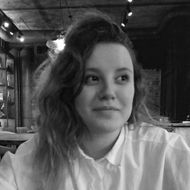
Alsu Fatekhova, tutor, lecturer at HSE FURD
‘This year’s programme was substantial and eventful. In addition to conducting field studies, the students and I visited a range of manufacturing facilities and held a series of expert meetings. We spoke to local activists and tourism development centres in the Sverdlovsk region and Nizhny Tagil.
The format and route of the trip helped to understand the specifics of the Ural region—its mining civilisation and industrial heritage—and to learn about and see first-hand the principles and development challenges of various areas. The students had the opportunity to conduct their own mini-studies under the supervision of HSE University lecturers. Some investigated approaches to the re-evaluation of industrial heritage—as with the Nizhny Tagil and Sysert factory museums—others analysed the workers’ settlements of Ekaterinburg and Perm, while others still studied street art and partisan movements. The trip was the students’ first opportunity to engage in serious field work, and all of the participants showed outstanding enthusiasm and motivation, got immersed in the initiatives, put forward ideas, and independently sought out people to speak to. In short, they did great work!
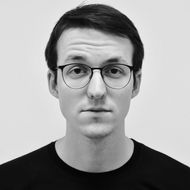
Nikita Kosolapov, tutor, lecturer at HSE FURD
‘Field work is a mandatory part of our Bachelor’s programme. Its goal is to give students an opportunity to learn to collect data in the field and use it to solve analytical tasks. Working on real projects, they will regularly face tasks involving the collection and processing of field data and setting data collection tasks, so this is an important set of skills for any urban planner.
We managed to work with various subjects over the two weeks. For example, on the first day in Satka (Chelyabinsk region), the students studied closed areas in the city: garage, warehouse, and manufacturing areas and their surroundings. On the second day, we focused on analysing the central areas of the city, their functionality and variety of uses. We were able to see the spatial structure of the city and its characteristics. By understanding these, we can draw conclusions about the issues facing the city in terms of the development of areas, communal, transport and social infrastructure.’
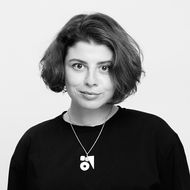
Evgenia Tidzhieva, tutor
‘Our group was notable for the fact that it was able interview a large number of tourism development experts and local historians, meet the Chelyabinsk team of ‘Tom Sawyer Fest’ (a festival dedicated to the restoration of the historical environment through volunteer effort and sponsors with a particular focus on wooden buildings), and work in several cities in the Urals.’
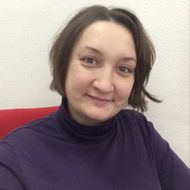
Varvara Zotova, tutor
‘The expedition gives students an opportunity to interact and learn to build communications. This is important, as working in urban planning involves business trips and frequent team changes on projects. You need to find common ground with your colleagues quickly and obtain information via various methods. The limited amount of time spent in each city teaches the students to set priorities and find a work-life balance.’
The route of Perm–Kungur–Pervouralsk–Ekaterinburg was a successful one. Travelling from one city of a million people to another through small and medium-sized cities is the perfect way to see totally different kinds of major cities and ask questions about the nature of those differences.’

Maria Makarova, 3rd-year student at FURD
‘These two weeks of field work were the best time of my two years of study! At first, it was difficult to get used to the rhythm, schedule, and conditions—as well as to each other. Then we all got into the swing of it and started to see the cities not just from the perspectives of tourists, but as specialists.’

Viktoria Seryanina, 3rd-year student at FURD
‘My personal impression of the expedition is of the contrast between the cities we visited and the attitudes of the locals towards us. We were impressed by how the local residents cherish their homes and reimagine them according to modern standards. Many of the people we talked to love the local space. The trip forced us to leave our comfort zone and live differently than we are used to in Moscow. But the knowledge gained from this experience is essential for future work in this profession.’
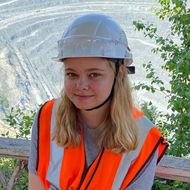
Maria Karnyushina, 3rd-year student at FURD
‘I had never been to the Urals before and I am glad that the field work took place there. The thing I remember and liked the most is the sense of the industrial past and the real Urals that you can feel everywhere. The trip let us develop our field and research skills—now, conducting interviews and social surveys, creating mind maps, and doing all of it in a single day is no problem!’
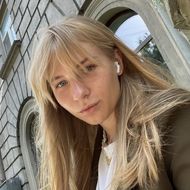
Anastasia Eliseeva, 3rd-year student at FURD
‘Our group was very lucky in terms of tutors. Our communications were respectful and on the same level. We had enough time to collect material for our individual essays. My team’s topic was related to the study of the cultural policy of the region, so we spoke a lot to representatives of this field in various Ural cities. My most vivid memory is of visiting the Pervouralsk New Pipe Plant. We were taken around several workshops, the first of which was the “hot” workshop. We arrived just when the steel was being produced and the temperature reaches up to 68 degrees—it’s amazing.’
Andrey Golovin
Nikita Kosolapov
Alsu Fatekhova

